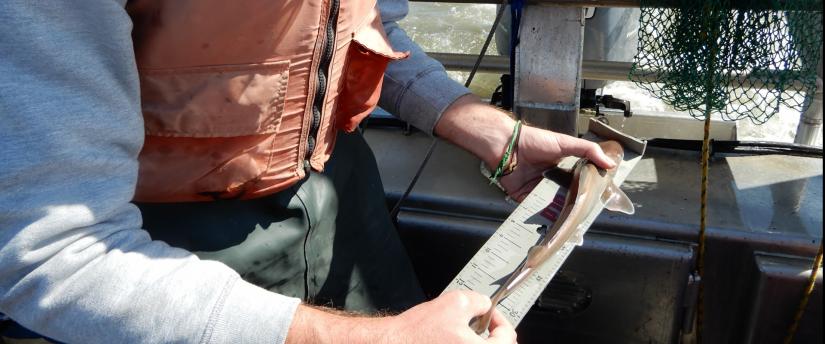
PROJECT HIGHLIGHT
This project investigated whether high pollution levels in the San Francisco Estuary are affecting leopard shark dietary and migratory behaviors, while characterizing the species' life history diversity within California's northern population.
PROJECT SUMMARY
The San Francisco Estuary serves as critical nursery habitat for leopard sharks, whose population has experienced extreme decline in recent years. With 38 wastewater treatment facilities discharging effluent into the estuary, previous studies attributed the collapse of pelagic fish communities to changes in nitrate and ammonium levels. This research examined whether these high pollution levels were affecting leopard shark dietary and migratory behaviors, while also characterizing the species' life history diversity within California's northern population through stable isotope analysis techniques.
The research team successfully applied multiple stable isotope analysis methods to track shark movement, habitat use and dietary patterns across different time scales. Using the principle that "you are what you eat," researchers analyzed the chemistry incorporated into predator tissues from consumed prey. They employed both bulk Stable Isotope Analysis and Compound-Specific Isotope Analysis of Amino Acids on muscle tissue to identify recent residency patterns and carbon sources for leopard shark subpopulations. Additionally, the team analyzed chronological tissues including tooth series for tracking annual movement patterns, vertebral rings for examining lifespan changes and eye lens layers for reconstructing complete life histories.
A significant accomplishment was the validation of eye lens analysis in cartilaginous fishes. This work established a new tool for fisheries managers to better understand movement and feeding dynamics of sharks and related species. Throughout the project, researchers collaborated with scientists and managers at the California Department of Fish and Wildlife and NOAA's National Marine Fisheries Service.
2022 California Sea Grant Graduate Research Fellowship Webinar Presentation - June 4, 2024